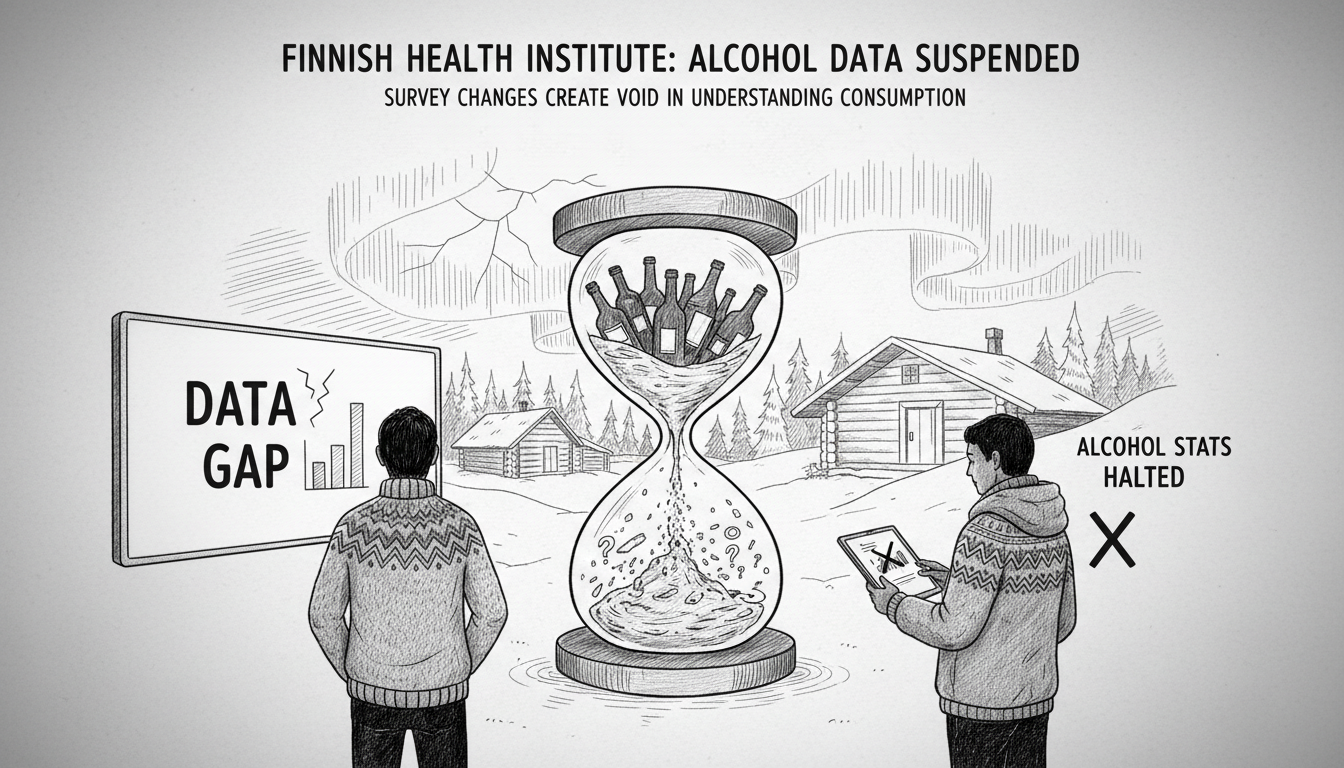Finland's Institute for Health and Welfare has suspended publication of national alcohol consumption statistics following a major methodological shift in data collection. The agency confirmed it will not release figures for total alcohol consumption, traveler imports, or online purchases this year after switching from telephone interviews to online panels.
The data collection method for tracking alcohol and tobacco imports changed at the beginning of the year. Officials state the new online panel approach produces results that cannot be compared with previous telephone survey data. This creates a significant gap in Finland's alcohol monitoring system.
Alcohol imports and online purchases account for approximately 15 percent of Finland's total alcohol consumption. Without reliable data on these categories, the institute cannot calculate overall consumption figures. Domestic retail and restaurant consumption statistics will continue as normal.
A leading expert explained that telephone interviews likely produced more accurate estimates of actual import volumes. The institute conducted its own analysis comparing both methods and found telephone surveys aligned better with external reference points.
The methodological change resulted from a competitive bidding process won by the online panel provider. Officials note the online approach is substantially cheaper than telephone interviews.
Meanwhile, separate data from industry groups suggests alcohol imports may be much higher than previously estimated. Brewery industry associations received statistics from the Ministry of Finance showing alcohol imports through September already exceeded total imports for all of last year.
The institute's own comparison shows dramatic differences between methods. January-August traveler imports were estimated at 6.9 million liters using the new method, compared to 3.1 million liters using the old approach. Officials believe this reflects methodological differences rather than actual consumption changes.
Parliament is currently considering legislation that would legalize alcohol home delivery and distance sales. Health officials warn this could significantly increase cross-border alcohol trade.
The online panel data will be published separately but likely won't become part of Finland's official statistics. Despite concerns about overestimation, the new method could still provide reasonable tracking of trends between future years.
This statistical gap comes at a critical time for alcohol policy in Finland. The country has historically maintained strict alcohol regulations through its state monopoly system. Recent years have seen gradual liberalization, making accurate consumption data increasingly important for public health planning.
International readers should understand that Nordic alcohol policies often balance liberalization with strong public health objectives. Finland's approach has traditionally emphasized controlling availability through state monopolies and high taxation. These latest statistical challenges highlight the difficulties in maintaining accurate monitoring as purchasing patterns evolve.
The suspension of key alcohol statistics means policymakers, researchers, and public health officials will lack crucial data during ongoing alcohol policy reforms. This could complicate efforts to assess the impact of legislative changes on public health and consumption patterns.

